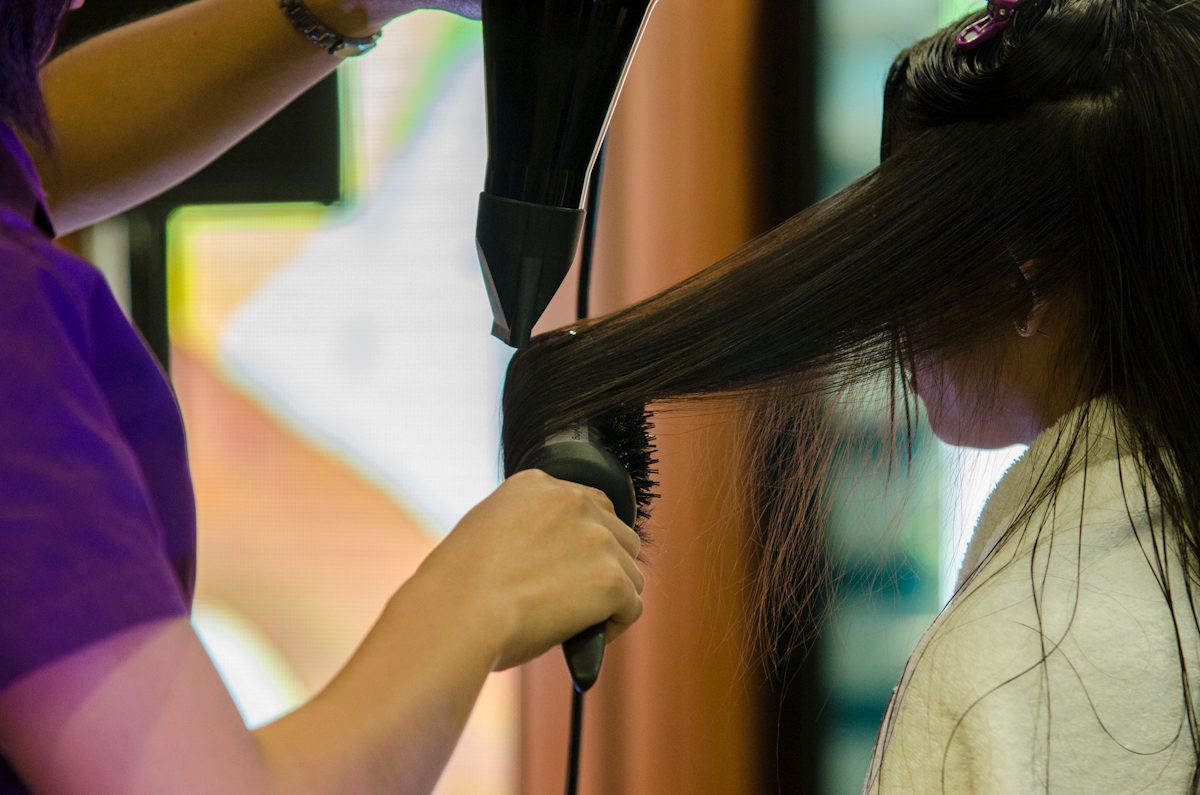SUMMARY
This is AI generated summarization, which may have errors. For context, always refer to the full article.

MANILA, Philippines – The Philippine government will allow spas, salons, and barbershops to operate in areas under a relaxed form of community quarantine, but not libraries.
This is according to a new list of industries, establishments, and activities that can open under a “general community quarantine” (GCQ) which was presented to the public by Presidential Spokesman Harry Roque on Tuesday, April 28, in a virtual press conference.
The list provides more details about the GCQ, guidelines for which were first explained by Roque in a public addressed aired on April 24. This address still left many with questions, especially on what the government considered “non-leisure” and “leisure” establishments and activities.
“Barbershops, salons, spas, and other personal care industries” were listed as among the establishments that can open under GCQ, in a limited capacity.
Roque himself pointed out the difficulty in enforcing physical distancing in salons in a press briefing on Monday, April 27.
“The problem with salons, barbershops is it’s impossible to do social distancing there. Unless we have developed scissors that are so long that the person cutting hair will be far [from the customer],” said Roque in Filipino.
But Trade Secretary Ramon Lopez gave an explanation for why salons and spas may open even if libaries cannot.
“Libraries can be online, salons and barbers cannot,” he told Rappler.
LOOK: Malacañang releases more detailed list of industries, establishments, and services that are allowed under general community quarantine (GCQ).
Screenshots from PCOO livestream pic.twitter.com/2h3xJ8wy3s
Sports-related events, libraries, museums, travel agency and tourism-related activities, cultural activities not allowed even in areas under GCQ.
Screenshot from PCOO livestream pic.twitter.com/Z9G8kTIm6F
Other establishments allowed under GCQ are clothing stores, accessory stores, hardware stores and other “non-leisure stores,” even those in malls and shopping centers.
Bookshops, toy stores, and lifestyle stores are also considered non-leisure and may thus open under GCQ, said Lopez.
However, all establishments mentioned above can’t operate at full capacity under GCQ. There must be only 50% onsite operation and 50% offsite or work-from-home.
What’s not allowed under GCQ? Any activity or establishment deemed “leisure” won’t be allowed even under loosened up quarantine rules.
These include libraries, which were bunched up with “archives, museums, and Other Cultural Activities” in the list of prohibited establishments.
Gyms, fitness studios, pubs, bars, cinemas, and theaters also remain closed under GCQ.
As for events and activities, there can be no holding of “large” concerts, mass sporting events (like tournaments and trainings), carnivals, conventions, trade shows, conferences, workshops, and retreats.
There was a specific prohibition on politically-related mass gatherings, like election rallies, polling centers, parades, and speeches.
Many areas in the Philippines, including its seat of government, Metro Manila, remain on “enhanced community quarantine,” the stricted quarantine measure imposed by the government.
Only when these areas show marked improvement in containing the novel coronavirus outbreak will they be downgraded to GCQ.
How did officials decide? The government placed establishments under two broad categories – leisure and non-leisure – and decided to allow limited operation of the latter.
But public demand and the need to provide livelihood were also factors considered by the government’s coronavirus task force.
Yet another factor was how possible it would be to enforce physical distancing, one reason why restaurants can only do take-out and delivery even under GCQ. – Rappler.com
Add a comment
How does this make you feel?
There are no comments yet. Add your comment to start the conversation.